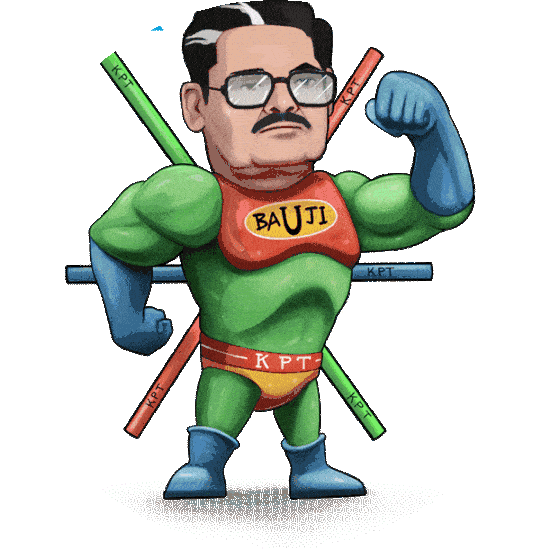
25 Mar PPR Pipes and Fittings in Sikkim
Polypropylene Random Copolymer (PPR) pipes are becoming essential components in modern plumbing systems, known for their exceptional strength, durability, and ability to withstand high temperatures and corrosive substances. Their adoption is increasing in both residential and industrial settings across India. In Sikkim, the demand for PPR pipes is rapidly rising due to their effectiveness in various environments.
This article delves into the benefits of PPR pipes and fittings in Sikkim, emphasizing their unique features, diverse types, and the reasons why they are favored by homeowners and businesses alike.
Importance of PPR Pipes in Modern Plumbing
PPR pipes are integral to today’s plumbing framework. They are distinguished by their ability to handle high pressures, extreme temperatures, and exposure to chemicals, making them suitable for a broad range of applications. Whether in residential water supply systems or extensive industrial setups, PPR pipes offer reliable, long-lasting solutions. The resistance to corrosion minimizes the necessity for regular maintenance, rendering them a financially advantageous choice. Moreover, PPR pipes are recyclable, making them an environmentally friendly choice for sustainable building projects.
How PPR Pipes Address Sikkim’s Plumbing Needs
Sikkim experiences a varied climate, ranging from cool, wet winters to warm summers, which can challenge traditional piping materials. Conventional pipes made from metal or PVC often deteriorate due to humidity and temperature fluctuations, frequently leading to leaks. Conversely, PPR pipes are specifically designed to withstand these conditions, providing superior thermal and moisture resistance. Their ability to handle both high temperatures and substantial moisture makes them ideally suited for Sikkim’s climate.
What Are PPR Pipes?
PPR pipes are manufactured from Polypropylene Random Copolymer, a material known for its flexibility, durability, and resistance to chemicals and high temperatures. These pipes are non-toxic, making them safe for drinking water systems. Their robustness and resistance to scaling and corrosion make them ideal for extended use in residential, commercial, and industrial plumbing applications.
Manufacturing Process of PPR Pipes and Fittings
The production of PPR pipes involves an extrusion process that shapes molten polypropylene into various pipe dimensions. Fittings such as elbows and tees are created through injection molding, ensuring precise measurements. Each pipe and fitting undergoes rigorous testing, including pressure and thermal resistance assessments, to confirm high performance in demanding environments.
Types of PPR Pipes Available in Sikkim
Standard PPR Pipes
These pipes are versatile and well-suited for general plumbing applications, fulfilling a variety of needs in both residential and commercial spaces.
Greentherm Pipes
Engineered for hot water systems, Greentherm pipes effectively retain temperature, making them ideal for heating applications in homes and businesses.
ThermaPlus Pipes
Designed to endure extreme temperatures, these pipes ensure safety and reliability in challenging environments.
Pneumatic Pipes
Essential for pressurized air systems, pneumatic pipes are vital in applications requiring compressed air transportation, such as workshops.
PPR-AL-PPR (Composite Pipes)
Reinforced for added strength, these composite pipes provide enhanced durability and resistance to deformation under pressure.
PPR-CT
Formulated specifically to resist corrosive substances, PPR-CT pipes are ideal for the safe transport of chemicals.
Glass Fiber Reinforced PPR Pipes
Perfect for heavy industrial applications, these pipes offer superior strength and stability, making them suitable for demanding environments.
UV-Resistant PPR Pipes
Designed for outdoor plumbing uses, UV-resistant pipes can withstand sunlight exposure without degrading, ensuring longevity in exterior setups.
Types of PPR Fittings Available in Sikkim
Elbows
Elbows are used to change the direction of pipes, allowing smooth transitions in plumbing systems and ensuring efficient flow.
Tees
Tee fittings are ideal for directing water in multiple directions, enabling the branching of pipelines to accommodate various plumbing requirements.
Couplings
These fittings are essential for extending pipe systems, allowing seamless connections between different pipe sections.
Valves
Valves regulate water flow, providing the ability to start, stop, or control the flow within plumbing systems.
End Caps
These fittings securely seal pipe ends, preventing leaks and maintaining system integrity when pipes are not in use.
Reducers
Reducers connect pipes of different sizes, ensuring smooth transitions in diameter and preventing flow restrictions.
Flanges
Designed for easy maintenance connections, flanges simplify the assembly and disassembly of plumbing systems, enhancing accessibility.
Crosses
Crosses are vital in complex plumbing systems for distributing water in four directions, accommodating multiple pathways.
Applications of PPR Pipes in Sikkim
Residential Plumbing
PPR pipes are used for both hot and cold water systems, providing reliable plumbing solutions for homes, ensuring safe and efficient water delivery.
Commercial Buildings
Ideal for complex plumbing and HVAC systems, PPR pipes support diverse applications in commercial environments, enhancing operational efficiency.
Industrial Use
Perfect for transporting fluids and gases in industrial settings, PPR pipes handle demanding conditions, ensuring safe and effective fluid management.
Key Benefits of PPR Pipes
Durability
With a lifespan exceeding 50 years, PPR pipes offer long-lasting performance, minimizing the need for frequent replacements and repairs.
Corrosion Resistance
PPR pipes prevent contamination and scaling, ensuring clean water flow and maintaining quality over time.
Temperature and Pressure Resilience
Capable of withstanding extreme variations, these pipes ensure consistent performance in fluctuating environmental conditions.
Eco-Friendly
Constructed from recyclable materials, PPR pipes promote sustainable practices and reduce environmental impact.
Cost-Effective
Their long-term savings, combined with minimal maintenance needs, make PPR pipes a financially sound choice for plumbing systems.
Installation of PPR Pipes
Tools Required
Essential tools for installation include pipe cutters and welding equipment, ensuring accurate cuts and secure connections throughout the process.
Installation Process
- Planning: Designing the layout optimally is crucial for flow and efficiency, considering the specific requirements of the plumbing system.
- Cutting: Ensuring accurate pipe sizes promotes a snug fit, preventing leaks and facilitating proper flow within the system.
- Welding: Fusion welding is utilized for creating tight connections, resulting in strong bonds that enhance the overall durability of the piping system.
- Testing: Inspecting for leaks before use is essential to ensure system integrity and reliability, safeguarding against potential operational issues.
Price of PPR Pipes and Fittings in Sikkim
The cost of PPR pipes and fittings in Sikkim varies significantly depending on the specific type and size needed for different applications. While initial expenses may appear higher compared to traditional piping materials, the long-term durability, reduced risk of leaks, and minimal maintenance requirements of PPR pipes make them a smart and cost-effective investment for both residential and industrial purposes.
Why Choose KPT Pipes for PPR in Sikkim?
KPT Pipes is recognized for producing high-quality PPR pipes tailored to meet the specific plumbing needs of Sikkim. Their commitment to excellence is evident, as each product undergoes thorough testing to ensure optimal performance in the region’s diverse climate, providing reliability and long-lasting durability for every installation.
How to Buy PPR Pipes and Fittings in Sikkim
KPT Pipes offers a seamless purchasing experience for customers, whether they are looking for solutions for home renovations or large industrial projects. Customers can visit their authorized dealers or browse the comprehensive online store to explore a wide array of PPR pipe options, ensuring they find the right products to suit their specific requirements.
Conclusion
In Sikkim, PPR pipes have become indispensable for modern plumbing due to their exceptional durability, versatility, and resistance to extreme weather conditions. KPT Pipes is dedicated to providing reliable and high-quality PPR products that effectively meet the growing demands of both residential and industrial users in the region, enhancing plumbing efficiency and sustainability.
FAQs
Q1. How do PPR pipes handle Sikkim’s weather conditions?
Ans: PPR pipes are designed to withstand extreme temperatures and high moisture levels, making them especially well-suited for Sikkim’s diverse climate. Their robust construction allows them to effectively resist the adverse effects of humidity and temperature fluctuations, providing long-lasting and reliable plumbing solutions year-round.
Q2. What advantages do PPR pipes offer for plumbing systems?
Ans: PPR pipes provide several advantages that make them an excellent choice for plumbing systems. They are highly durable and environmentally friendly, contributing to their long lifespan. Additionally, their resistance to corrosion prevents issues such as leaks and contamination, ensuring clean water flow. This unique blend of qualities enables PPR pipes to withstand high-pressure conditions and extreme temperatures, making them suitable for various applications in residential, commercial, and industrial plumbing systems.
Q3. Why should you choose KPT Pipes in Sikkim?
Ans: KPT Pipes offers products meticulously crafted to meet the specific environmental conditions of Sikkim, ensuring high performance and reliability. Their commitment to quality and innovation guarantees that every product meets stringent industry standards, making them a trusted choice for all plumbing needs in the region.



